String Theory into the Dustbin?
Not Even Wrong, by Columbia University mathematician Peter Woit, and The Trouble with Physics, by Lee Smolin at the Perimeter Institute for Theoretical Physics in Waterloo, Ont., both argue that string theory (or superstring theory, as it is also known) is largely a fad propped up by practitioners who tend to be arrogantly dismissive of anyone who dare suggest that the emperor has no clothes.As I understand it, string theory, which Lemonick says has been around now for nearly 30 years, is an attempt to unify quantum mechanics and Einsteinian relativity, which don't go together all that easily. In quantum theory, energy comes in discrete packets that have a set minimum size. In relativity, energy is a smooth, continuous variable that can be as small as you like.
String theorists hope that such apples-and-oranges differences might be harmonized under the proper mathematical umbrella. Their math requires that there be not four dimensions of spacetime, but ten or more. The ones we do not see have simply collapsed and become vanishingly small.
Furthermore, the smallest objects in the universe are no longer particles, according to the math of string theory, but "minuscule, vibrating loops and snippets of stuff resembling string," says Lemonick. "Bizarre as it seemed, this scheme appeared on first blush to explain why particles have the characteristics they do. As a side benefit, it also included a quantum version of gravity and thus of relativity."
Woit and Smolin, themselves disenchanted string zealots, now assail the theory for having grown way too complex. Each successive new wrinkle in the fashioning of the theory has been smoothed over with "solutions [that] often introduce yet another layer of complexity," in Lemonick's words. "Complexity isn't necessarily the kiss of death in physics, but in this case the new, improved theory posits a nearly infinite number of different possible universes, with no way of showing that ours is more likely than any of the others."
And that is what piques my interest. Genome mapper and evangelical Christian Francis Collins talks in The Language of God: A Scientist Presents Evidence for Belief of the anthropic principle, which in at least one of its versions notes that (per Wikipedia) "If any of the fundamental physical constants [of our universe] were sufficiently different, then life as we know it would not be possible and no one would be around to contemplate this universe we live in."
There are some number of numerical constants in physics that, in terms of their values, apparently just are what they are. They cannot be derived mathematically from other, simpler numbers or relationships. For example, the gravitational constant, G, which relates the masses of objects along with the distance separating them to the attractive force between them, is one of the "just so" constants of physics.
Presumably, life as we know it could never have evolved in a universe with a different set of constants. Collins believes this is a sign of God's handiwork. Admittedly, this theistic conclusion is not quite a slam dunk, as there are many ways of undermining its logic (see this Wikipedia article for some of them). One is that it is an unremarkable truism: the only reason we are even here to wonder at the issue is because these physical constants were, for whatever reason, just right.
Still, I think the anthropic principle does furnish suggestive (though not conclusive) evidence for God ... unless, that is, there actually do exist — to repeat the phrase used above — "a nearly infinite number of different possible universes, with no way of showing that ours is more likely than any of the others." In that case there would almost certainly be, by sheerest chance, at least one universe within such a collection whose creatures are, like us, capable of mulling over the deeper significance of the anthropic principle.
Here is where the Lemonick article gets very interesting, then. Woit, he says, raises the issue of whether string theory qualifies, even, as a legitimate part of science!
Here's how Lemonick puts it:
Now, it seems, at least some superstring advocates are ready to abandon the essential definition of science itself on the basis that string theory is too important to be hampered by old-fashioned notions of experimental proof.Nobody has yet thought of a way to test string theory empirically, by generating concrete hypotheses based on it and subjecting them to experimental verification. That makes string theory, in a way, much like Intelligent Design theory. ID, the proposal that a power outside this world furnished earthly evolution's directionality by, at various critical junctures, fashioning new, "irreducibly complex" structures like bacterial flagella and eyes, allows of no experimental verification either, say its critics — of which I am one.And it is that absence of proof that is perhaps most damning. Physicists have a tolerance for theory; indeed, unless you were there to witness a phenomenon yourself — the Big Bang, say — it will always be, at some level, hypothetical. But the slow accretion of data and evidence eventually eliminates reasonable doubt. Not so — or at least not yet — with strings.
"It's fine to propose speculative ideas," says Woit, "but if they can't be tested, they're not science." To borrow the withering dismissal coined by the great physicist Wolfgang Pauli, they don't even rise to the level of being wrong.
On the one hand we have a notion, string theory, which undergirds the possibility of a manifold of universes, sometimes called a "multiverse." Of that manifold entity our universe is putatively just one of a huge number of actual universes, not just imaginable ones, each one slightly different in its fundamental, arbitrary constants of physics, such that the anthropic principle no longer serves as a (weak or strong) argument that there must be a God. String theory can accordingly be thought of as crypto-atheistic.
On the other hand we have a notion, Intelligent Design theory, which suggests evolution couldn't have been undirected; there has to have been an artificer working behind the scenes. ID is accordingly crypto-theistic.
Now it appears that both of these seemingly antithetical proposals share a common characteristic: neither can be falsified by the experimental testing of hypotheses derived from the respective theory itself.
Scoffers at ID say it is consequently bogus science. One would have to have just fallen off the turnip truck not so suppose that a good deal of such hostility to ID is motivated by the personal commitment of the scoffer to a purely materialistic worldview. According to this Wikipedia article on materialism:
Science uses a working assumption, sometimes known as methodological naturalism, that observable events in nature are explained only by natural causes without assuming the existence or non-existence of the supernatural.Materialism, like string theory, is thus subject to the accusation of being crypto-atheistic. Its proponents (as well as a great many other people who are not strict philosophical materialists, myself included) extol the scientific method of inquiry which requires all hypotheses to be experimentally falsifiable. I wonder: would those same materialists, then, agree that string theory too should be chucked into the dustbin of scientific history, on similar grounds to ID?






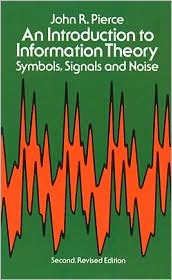

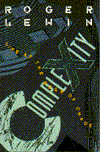

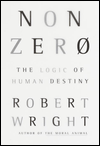

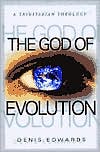

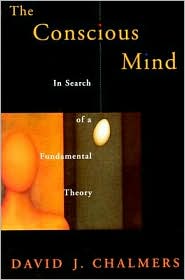
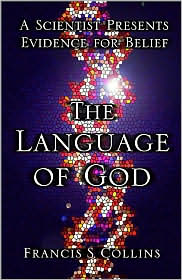


0 Comments:
Post a Comment
<< Home